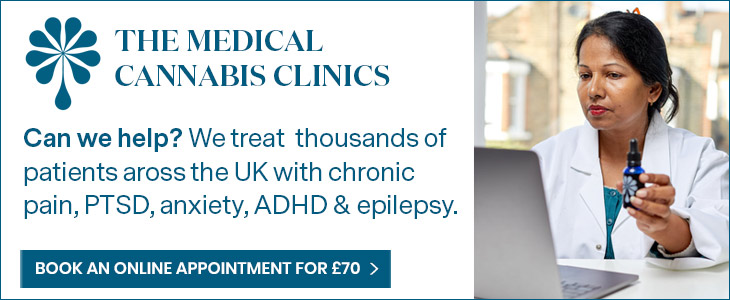Anxiety, the body’s natural response to stress, is a feeling of fear or apprehension about what’s to come.
Events such as job interviews, the purchase of your first home, a medical appointment or public speaking may cause people to feel nervous or fearful, but how can CBD oil help with that?
The past two years have provided sufficient uncertainty for even the calmest of people to feel anxious, so it’s no surprise that a study found 89 per cent of its participants turned to CBD products for the first time during the Covid-19 pandemic. A further 20 per cent said they took it for anxiety.
CBD is a type of cannabinoid that is found naturally in cannabis plants. Early research shows promising results regarding the ability of CBD oil to help relieve anxiety.
Unlike tetrahydrocannabinol (THC), another type of cannabinoid that has more psychoactive effects, CBD does not cause any feelings of intoxication or the feeling of being ‘high’ which you may associate with cannabis use.
CBD and anxiety
CBD works through interacting with the CB1 and CB2 receptors that are found in the body. Receptors, which are protein-based chemical structures attached to your cells, receive signals from different stimuli.
CBD is thought to interact with are mostly found in the central and peripheral nervous systems, essentially the routes the body uses to send messages to its different parts, and drive the reaction to change.
While the exact way CBD affects receptors in the brain isn’t fully understood, it is thought that it may work by altering serotonin signals, a neurotransmitter that plays an important role in a person’s mental health.
Low levels of serotonin are widely associated with people suffering from depression, and in many cases can also cause anxiety.
A common treatment for these disorders is usually a prescribed anti-depressant acting as a selective serotonin reuptake inhibitor such as the medication such as sertraline or fluoxetine, however, some with anxiety choose to manage the condition with CBD products such as oil, edibles, vapes or creams.
Mental Health and anxiety
A 2011 study that researched the effects of cannabidiol (CBD) on people with a social anxiety disorder (SAD) found that those who were given CBD instead of the placebo experienced reduced overall anxiety levels.
Multiple other studies have also found that CBD may help with the symptoms of post-traumatic stress disorder (PTSD) such as nightmares and replaying negative memories, with others finding that it may also help to treat anxiety-induced insomnia.
Interestingly these studies have looked at using CBD both as a standalone treatment for conditions such as PTSD and SAD, as well as supplementing more traditional treatments such as medication and cognitive behavioural therapy, with both showing positive results.
Does it really work?
In 2021, a review of the research so far found that CBD may have a positive impact on relieving anxiety.
While the studies in the review looked at CBD use for a range of issues, when it came to anxiety, the research revealed that the CBD potentially reduced ‘anticipator anxiety’ by interacting with the part of the brain that deals with emotions and emotional information.
Although the majority of the research does demonstrate that CBD may have a positive impact on the symptoms of anxiety, there is still much debate surrounding the correct dosage. While many assume CBD needs to be consumed in high doses to see any effect, others have observed positive effects in people taking an average of 60mg per day – a tenth of the commonly recommended dosage.
Whatever you’re using CBD for, and however you choose to take it, it is always wise to seek advice from professionals before doing so.
The post Could CBD help with anxiety and improve our mental health? appeared first on Cannabis Health News.



